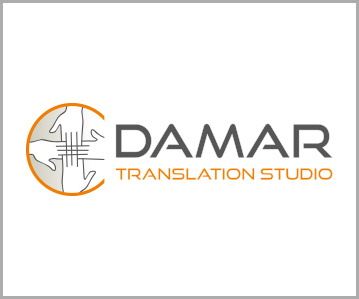

O NAS
Biuro tłumaczeń DAMAR
Jesteśmy na rynku od 1989 r.
"Tłumaczenie ma znaczenie..."
Tłumaczenia to nasz żywioł od 1989 r. Biuro Tłumaczeń DAMAR zostało założone przez mgr inż. Jerzego Marca w 1989 r., czyli w okresie transformacji politycznej i ekonomicznej Polski i całej Europy Środkowej. Zaczynaliśmy od jednej maszyny do pisania i tłumaczeń wykonywanych odręcznie. Dziś pracujemy z nowoczesnymi narzędziami wspomagającymi tłumaczenie. Wciąż jednak to wiedza i doświadczenie ludzkie stanowią o wysokiej jakości naszej pracy. Od roku 2016 kontynuujemy naszą działalność jako spółka z ograniczoną odpowiedzialnością. Mimo zmiany formy prawnej, niezmienne wciąż pozostają filary naszej działalności, czyli jakość, terminowość, poufność i profesjonalna obsługa.
USŁUGI
01.
Tłumaczenia techniczne
Jedną z naszych specjalizacji są tłumaczenia techniczne dla przemysłu, handlu i usługodawców. Mamy ogromne doświadczenie w tłumaczeniu dla wielu sektorów..
02.
Tłumaczenia dla biznesu
Świetny tłumacz techniczny, który potrafi prawidłowo nazwać i zdefiniować każdy element pieca hutniczego lub wału korbowego, niekoniecznie poradzi sobie z językiem rachunkowości lub prawa..
03.
Tłumaczenia przysięgłe
Zdecydowanie nieodłączną częścią branży, w której działamy, są tłumaczenia uwierzytelnione, w samej swojej istocie podlegające wielu przepisom i normalizacji..
04.
Tłumaczenia ustne
Od lat dla licznych zakładów przemysłowych zapewniamy obsługę tłumaczy ustnych na spotkania handlowe, szkolenia, audyty techniczne, konferencje, wizyty zagraniczne itp..
05.
Redakcja i copywriting
Śmiało można powiedzieć, że przy tłumaczeniach tekstów typowych np. dla reklamy, branży marketingowej, istotnym etapem pracy nad tłumaczeniem jest redakcja końcowa tekstu..
06.
Tłumaczenia dokumentów rejestracji
Sprowadziłeś z zagranicy samochód i chcesz jak najszybciej zarejestrować pojazd w Wydziale Komunikacji Urzędu Miejskiego..?
07.
Język polski jako obcy
Na życzenie klienta prowadzimy nauczanie języka polskiego jako obcego z dojazdem do domu czy miejsca pracy klienta. Jest to idealne rozwiązanie dla obcojęzycznych menadżerów..
08.
Darmowa wycena
Chcesz wiedzieć dokładnie, ile zapłacisz za tłumaczenie? Oczywiście, że chcesz! Aby uzyskać kompleksową i wiążącą wycenę, prześlij kompletne dokumenty drogą mailową..
09.
Pomoc językowa
Pomoc we wszelkich sprawach urzędowych i formalnych, wypełnianie formularzy obcojęzycznych, rozmowy telefoniczne w imieniu klienta, szybka pomoc językowa..
Nasz zespół
KONTAKT
ADRES:
Biuro Obsługi Klienta:
ul. Kilińskiego 40/L.III, 41-200 Sosnowiec
Biuro Tłumaczy/Dział Korekty:
ul. Kiepury 47, 41-200 Sosnowiec
damar@damar.net.pl
tel.: +48 32 266 96 36
tel.: +48 32 294 94 75
NIP: 6443524886
Oceniasz nas dobrze?
Napisz opinię na naszym profilu Google.
NASZA LOKALIZACJA
Do pobrania
Skontaktuj się! tel.: +48 32 266 96 36 | +48 32 294 94 75

















